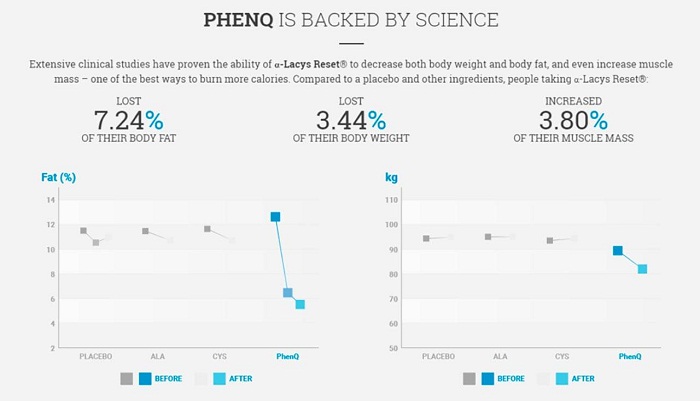Phentermine and Constipation
Contents
- 1 Phentermine and Constipation
- 2 Understanding Phentermine’s Mechanism of Action
- 3 Surveying the Spectrum of Side Effects
- 4 Unraveling the Constipation Conundrum
- 5 The Direct Impact: Phentermine and Constipation
- 6 Quantifying the Prevalence: Statistics on Constipation Incidence
- 7 Strategies for Constipation Management
- 8 Frequently Asked Questions (FAQs)
- 9 Final Thought On Phentermine and Constipation
Phentermine, celebrated for its efficacy in weight loss, has users questioning potential side effects, with constipation being a prevalent concern among users. In this extensive exploration, we unravel the complex relationship between phentermine and constipation, aiming to answer the pivotal question: Does phentermine cause constipation?
Also Read: Does Phentermine Make You Feel Hot
Understanding Phentermine’s Mechanism of Action
The Sympathomimetic Amine
Phentermine, classified as a sympathomimetic amine, operates as an appetite suppressant by stimulating the release of neurotransmitters like norepinephrine. This interaction with the central nervous system results in reduced appetite, making it a key component of short-term weight-loss plans.
Surveying the Spectrum of Side Effects
Common Side Effects of Phentermine
While users often applaud phentermine for its weight-loss benefits, it is vital to acknowledge the spectrum of potential side effects. These can vary from person to person, encompassing insomnia, dry mouth, dizziness, increased heart rate, and the focus of our inquiry—constipation.
Unraveling the Constipation Conundrum
Constipation: A Gastrointestinal Challenge
Constipation, a gastrointestinal condition characterized by infrequent bowel movements, difficulty passing stool, or a feeling of incomplete evacuation, takes center stage in the phentermine user experience.
The Direct Impact: Phentermine and Constipation
Reduced Gastrointestinal Motility
Phentermine’s sympathomimetic properties extend beyond appetite suppression to potentially impact gastrointestinal motility. This effect can lead to a slowdown in the natural contractions of the intestines, resulting in a delayed passage of stool.
Dehydration Dynamics
The diuretic effects of phentermine contribute to increased urine production, elevating the risk of dehydration. Dehydration, a known factor in constipation, results in firmer and drier stools that can be challenging to pass.
Altered Diets and Fiber Intake
Phentermine often prompts users to make significant dietary adjustments, inadvertently affecting fiber intake. A reduction in fiber can contribute to constipation, emphasizing the importance of balanced nutrition.
Quantifying the Prevalence: Statistics on Constipation Incidence
Insights from Studies
While precise statistics on constipation incidence specifically related to phentermine are limited, one study published in the International Journal of Obesity reported constipation in approximately 8% of participants using phentermine for weight loss.
Strategies for Constipation Management
Holistic Approaches
For users grappling with constipation while on phentermine, a proactive stance is crucial. Employing a multi-faceted approach can mitigate symptoms and enhance overall well-being.
Increase Fiber Intake
A dietary regimen rich in fiber can soften stool and facilitate regular bowel movements. Collaborating with healthcare professionals can assist in creating a personalized, fiber-rich meal plan.
Prioritize Hydration
The diuretic effects of phentermine underline the importance of staying adequately hydrated. Consistent water intake helps prevent dehydration, a factor exacerbating constipation.
Embrace Physical Activity
Regular exercise not only supports weight loss but also stimulates the muscles of the gastrointestinal tract, promoting bowel movements. Incorporating physical activity into daily routines is a valuable strategy.
Consider Medication Adjustment
For persistent constipation concerns, an open dialogue with healthcare providers is essential. Discussions may revolve around potential dosage adjustments or exploring alternative medications with lower constipation risks.
Frequently Asked Questions (FAQs)
- Can constipation be entirely avoided when using phentermine?
While not guaranteed, adopting proactive measures can significantly reduce the likelihood of constipation in phentermine users.
- Are there alternative medications to phentermine with lower constipation risk?
Healthcare providers can guide users in exploring alternative weight-loss medications that may pose a lower risk of constipation.
- How long does constipation typically last when using phentermine?
The duration of constipation varies among individuals. Regular communication with healthcare providers ensures timely interventions.
- Can dietary adjustments alone alleviate constipation caused by phentermine?
Dietary changes, particularly an increase in fiber intake, can be effective in managing constipation. However, a holistic approach involving multiple strategies is often recommended.
- Is constipation a sign that phentermine is not working for me?
Not necessarily. Constipation is a known side effect, and its presence does not necessarily indicate ineffectiveness. Consult with your healthcare provider for personalized guidance.
- How can I tell if my constipation is related to phentermine or other factors?
Keeping a detailed record of symptoms, dietary habits, and medication use can help identify patterns and determine if constipation is linked to phentermine or other factors.
- Can over-the-counter laxatives help with phentermine-induced constipation?
Before using over-the-counter laxatives, it is advisable to consult with a healthcare provider. They can guide the safety and efficacy of specific laxatives in the context of phentermine use.
- Are there specific foods that can worsen constipation while on phentermine?
While individual responses vary, processed foods, low-fiber items, and certain dairy products may contribute to constipation. Maintaining a balanced diet is crucial for overall digestive health.
- Can I continue using phentermine if I experience persistent constipation?
Persistent constipation should be discussed with your healthcare provider. They can assess the overall risk-benefit profile and consider potential adjustments to your treatment plan.
- Are there lifestyle changes beyond diet and exercise that can help alleviate constipation with phentermine?
Adequate sleep, stress management, and regular bowel habits can complement dietary and exercise interventions in managing constipation. Discussing these aspects with your healthcare provider is essential for a comprehensive approach.
Final Thought On Phentermine and Constipation
In conclusion, the nuanced relationship between phentermine and constipation unveils potential challenges on the weight-loss journey. Addressing the question, “Does phentermine cause constipation?” necessitates a comprehensive understanding of the medication’s mechanisms and their impact on gastrointestinal function. By adopting proactive strategies and maintaining open communication with healthcare providers, users can navigate potential constipation issues more effectively, ensuring a well-informed and positive experience with phentermine.



